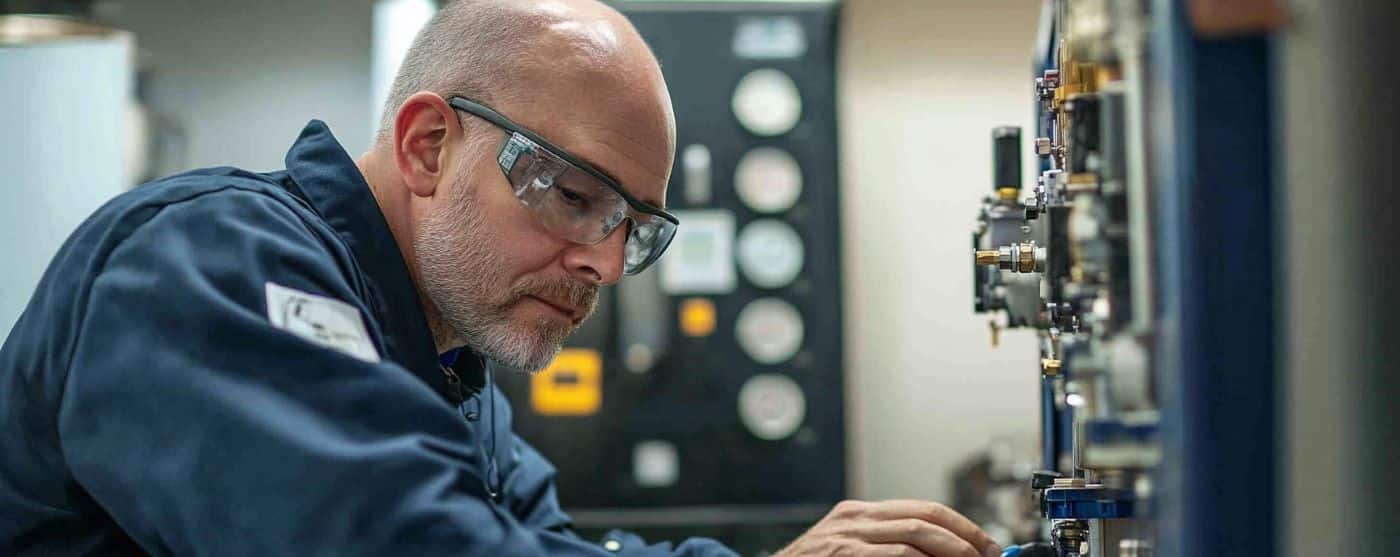
What is a Thermal Engineer?
Professionals in the field of thermal engineering strive to develop more efficient means for transferring energy into more practical means, drawing on their expertise in heat transfer. Within an industrial context, these engineers work on solutions for fuels, exploring forms of chemical, electrical and mechanical energy. These professionals find specialization in the fields of high technology, solar power, oil and gas, power companies, as well as temperature control systems. Transforming power grids to create more affordable electricity has become one of the most popular fields utilizing the expertise of thermal engineers.
If you want to know more about becoming a thermal engineer, contact the schools listed here to learn more. It’s important to talk to as many schools as you can to determine the best way forward.
Thermal engineers dedicate their efforts to refining electronics systems and safety applications. They collaborate extensively with groups of hardware and software experts at all stages of the product cycle from initial design through the manufacturing and installation of products and systems. In this capacity, they may develop models for industrial assets rooted in computer projects for optimizing source materials and functionality.
If you want to learn more about entering this area of engineering, contact the schools in our directory to find out more!
Applied Thermal Engineering Degrees
A range of private enterprises actively seek to add thermal engineers to their organizations. From technology firms and automotive companies to utility power firms, the skills of a thermal engineer are sought to deliver efficient solutions to energy problems.
Specifically these companies integrate engineers into projects such as refining power converters and circuit breakers; overseeing thermal design projects including analysis and manufacturing integrity; collaborating with manufacturing groups and vendors internally and externally to manage a product development cycle; and analyzing risks and opportunities with a given product or system.
Traditionally, these professionals are required to travel to various locations for in-person consultations and evaluations of a facility or project. More senior professionals who assume management roles are required to recruit and manage teams of engineers in bringing to fruition a project within a designated corporate budget.
Communication and people skills, of course, are a vital asset for professionals in this capacity. Global corporations such as Google, General Motors, Duke Energy, and Apple are a few of the firms seeking thermal engineers of various backgrounds to lead and execute their industry initiatives.
Choosing a Degree Program that Fits This Career
Though most universities in the United States do not offer formal degrees in thermal engineering, most candidates find employment with a Bachelor’s Degree in mechanical engineering. This level of education is required by employers in the industry. In this course of study, students complete coursework in thermodynamics, computer science and kinetics.
Those students who elect to pursue more advanced study in the field at the Master’s and Ph.D. level access career opportunities in advanced research, design and quality control. Coursework at the Master’s level explore theory in heat transfer and mechanics rooted in computer modeling and smart materials that respond to temperature change. Doctoral students embark upon classwork in granular flows, electronics architecture, data storage solutions, as well as material innovation, whereby they assume titled roles like consultant analyst, heat engineer and quality assurance manager.
These highly trained professionals are actively recruited by federal organizations like the U.S. Department of Energy and the Defense Advanced Research Project Agency in order to teach both graduate and undergraduate students at esteemed universities around the world. Candidates are served by also developing broader skills in terms of written and oral communication, leadership, negotiating, multitasking as well as team-building and management capacities.
Networking and Career Outlook Advice for Thermal Engineers
Thermal engineering professionals have access to a medley of organizations and associates to bolster their careers. From the American Society of Mechanical Engineers (ASME), which features a library of resources for present and future practitioners, to the Technology Student Association (TSA), and the National Society of Professional Engineers (NSPE), students and seasoned thermal engineers access information and soil-building resources to buttress their daily learning. They specifically learn of the constantly evolving developments in technology and best practices that are transforming the industry.
In addition, updates are provided on events, news and congresses within the field that endeavor to unite and strengthen the community. Young engineers have access to mentoring and networking opportunities that will facilitate their entry and rise into the profession. Moreover, prospective job candidates have access to recruiters from prestigious global firms like Intel, Sony and ConEd.
As stated by the U.S. Bureau of Labor Statistics (BLS), the job prospects for thermal engineers are predicted to continue to grow by 9 percent through 2020. The U.S. states of California and Texas are geographic locales featuring the most opportunities for these professionals. According to compensation statistics at O*Net salary data, these engineers earned a median salary of $82,100.
Real Life Impact of Thermal Engineers
Thermal engineers have been instrumental in changing the way people find and use energy throughout the world as well as in pushing space exploration into new realms. Most people think of Google as an Internet search engine company, but the firm has expanded its resources into creating better energy solutions for the planet. The firm actively recruits thermal engineers to work on its project for developing clean and affordable power grids. Their Energy Access team endeavors to recruit and nurture engineers to its efforts, underscoring its conviction in its identity as an engineering firm.
Moreover, the University College London (UCL) Mullard Space Science Laboratory considers the work of its thermal engineers as vital for enhancing space exploration initiatives. One of their professionals, Christine Brockley-Blatt, has exemplified the seamless transition these practitioners make from the classroom to real world applications.
After completing her undergraduate degree in Mechanical Engineering and Physics, Brockley-Blatt completed an internship with an aerospace firm, whereby she trained on a project dealing with the landing gear and propeller technology for a medley of aircraft models. She then applied more of her thermal engineering training to an automotive firm. With UCL she currently works as a project manager on cooling technology in outer space exploration solutions.
On a daily basis, she employs calculations in mechanical and thermal capacities, performs project management duties, and demonstrates oral and written communications. Her rich educational background and professional experience illuminate the depth and versatility the field requires of its practitioners to excel.
If you want to learn what opportunities may be available to you as a thermal engineer, contact the schools in our directory to start planning your way forward!


